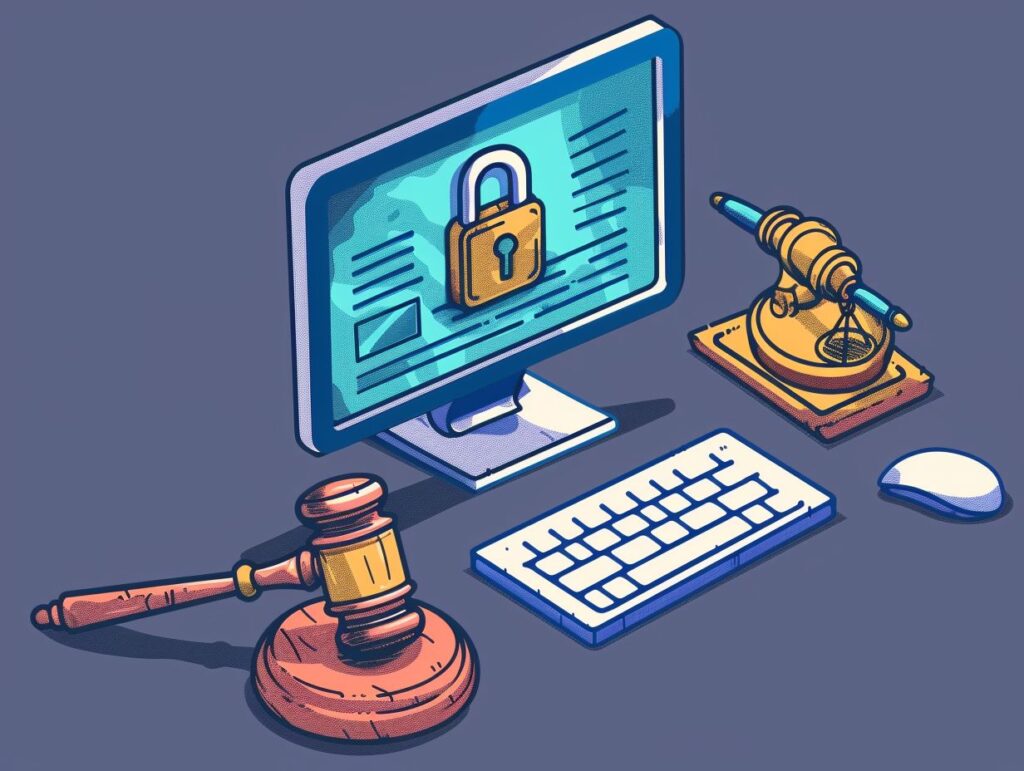Probate disputes can be a complex and emotionally charged process that can arise after the death of a loved one. From disagreements over asset distribution to will contests, these disputes can cause tension among family members and beneficiaries.
We will explore the common types of probate disputes, the causes behind them, and the steps to handle them in Florida. Additionally, we will discuss the possible outcomes of a probate dispute and provide tips on how to avoid them altogether.
If you find yourself in the midst of a probate dispute, this article is a must-read.
Key Takeaways:

- Be prepared and have a comprehensive estate plan to avoid probate disputes in Florida.
- Consider mediation as a first step to resolving probate disputes in an amicable and cost-effective manner.
- Consult with an experienced attorney and gather evidence to support your case before filing a lawsuit.
What are the Steps to Handle Probate Disputes in Florida?
Dealing with probate disputes in Florida typically includes several important steps, such as:
- Exploring mediation
- Collecting evidence
- Seeking advice from a legal professional
- Potentially initiating legal action
1. Seek Mediation
Engaging in mediation can serve as an effective method for resolving probate disputes amicably, offering a platform for beneficiaries to engage in negotiations and find common ground.
During the mediation process, conflicting parties have the opportunity to address their concerns in a neutral environment facilitated by a trained mediator. This approach often promotes open communication and facilitates understanding among the parties involved, enabling them to consider mutually beneficial solutions.
By participating in mediation, individuals can avoid the lengthy and expensive court proceedings, while also maintaining a greater degree of control over the resolution of the dispute. Emphasizing collaboration and seeking common ground, this alternative dispute resolution approach can lead to a faster and more sustainable resolution.
2. Gather Evidence
Collecting evidence is an important aspect of probate litigation, especially in cases where the validity of a will is being contested.
Different forms of evidence are significant in probate cases, including documents like the original will, financial records, property deeds, and correspondence. Testimonies from witnesses can provide firsthand information about the intentions or mental state of the deceased at the time of creating the will.
Expert opinions from forensic accountants or handwriting specialists can aid in verifying the authenticity of signatures and other critical aspects. Each piece of evidence helps in constructing a solid case and reinforcing legal arguments during probate litigation.
3. Consult with an Attorney
Seeking guidance from an attorney, particularly a Florida probate lawyer, is important when dealing with the intricacies of probate disputes and receiving professional legal advice.
Probate disputes can present various obstacles such as contested wills, estate administration issues, and disagreements among beneficiaries, all of which necessitate a comprehensive understanding of state-specific laws and regulations.
Collaborating with a proficient attorney enables individuals to receive personalized guidance tailored to their specific circumstances, assistance in resolving conflicts through negotiation or litigation, and support in ensuring the protection of their rights throughout the probate process. Leveraging their expertise, attorneys can streamline proceedings, reduce delays, and ultimately secure a fair resolution for all involved parties.
4. File a Lawsuit
Initiating a lawsuit in probate court may be necessary if mediation and other methods do not successfully resolve the probate dispute.
Once the determination to proceed with a lawsuit is reached, the individual initiating the lawsuit, referred to as the plaintiff, must draft a complaint that outlines the legal foundation for the claim and the desired relief.
This complaint is then submitted to the probate court, commencing the legal process. Following this, the defendant, the party being sued, will be served with the complaint and will have the opportunity to respond.
The legal procedure may involve discovery, where both parties exchange information and evidence. Eventually, the lawsuit may progress to a trial in which a judge or jury will make a decision based on the evidence presented. Potential outcomes of the lawsuit include reaching a settlement, receiving a judgment in favor of one party, or the dismissal of the case.
What are the Possible Outcomes of a Probate Dispute?
The potential results of a probate dispute can differ, spanning from an agreement between parties to a court ruling, and in certain instances, an appeals process.
1. Settlement

A settlement is frequently achieved through mediation, enabling parties in probate disputes to reach an agreement without court involvement. This approach to reaching a settlement can be beneficial as it aids in nurturing cooperative relationships between conflicting parties.
Through mediation, individuals can express their concerns and interests openly, promoting a deeper understanding of each other’s viewpoints. Resolving matters outside of court can save time and money that would otherwise be consumed by protracted legal conflicts.
It offers a more effective and confidential method of resolving probate disputes, facilitating tailored solutions that address the unique needs and priorities of the parties involved.
2. Court Decision
A court decision is a potential outcome where the probate court resolves the dispute through a formal legal process.
In reaching a court decision, the judge carefully considers all the evidence presented by the parties involved in the case. The judge’s role is crucial as they are responsible for interpreting and applying the law to the specific facts of the case. This process involves analyzing legal arguments, evaluating witness testimonies, and reviewing relevant statutes and precedents.
Ultimately, the judge must weigh the credibility of the evidence and make a well-reasoned decision based on the law. The impact of the court decision can be profound, determining the rights, obligations, and outcomes for the parties affected by the ruling.
3. Appeal Process
The appeal process permits parties engaged in probate litigation to contest the probate court’s ruling. To begin this process, an individual must submit a notice of appeal to the court within a designated timeframe following the court’s decision. Alongside the notice, the appellant is required to submit a written brief detailing the reasons for the appeal, backed by pertinent evidence and legal arguments.
Subsequently, the court will arrange a hearing where both parties can present their arguments. The conclusion of the appeal may lead to the court either upholding the initial decision, making alterations to it, or overturning it based on the evidence and arguments presented.
How to Avoid Probate Disputes?
Preventing probate disputes involves taking proactive steps, such as developing a thorough estate plan, maintaining open communication with beneficiaries, and seeking advice from professionals.
1. Create a Comprehensive Estate Plan
Developing a comprehensive estate plan with the assistance of an estate attorney can significantly decrease the likelihood of probate disputes.
Elements of a thorough estate plan typically consist of a will, trust, power of attorney, and healthcare directives. These documents detail the distribution of assets, designate individuals to manage affairs in case of incapacity, and specify end-of-life medical preferences.
An estate attorney plays a critical role in ensuring legal compliance, documenting intentions clearly, and aligning the plan with current laws. They offer guidance on intricate matters such as estate tax reduction and asset protection for future generations, providing reassurance for both the individual and their loved ones.
2. Communicate Openly with Beneficiaries
Establishing open communication with beneficiaries during estate planning consultations can aid in setting clear expectations and preventing future disputes. Being transparent about the decision-making process and involving beneficiaries in discussions can ensure that everyone understands their roles and responsibilities.
Regular updates and conversations about any changes or updates to the estate plan can also help in maintaining trust and minimizing confusion. Addressing any concerns or questions that beneficiaries may have promptly can foster a positive relationship and avoid misunderstandings down the line.
By keeping beneficiaries informed and engaged throughout the estate planning journey, one can create a more harmonious and cooperative environment for all parties involved.
3. Update Estate Plans Regularly
Keeping estate plans regularly updated ensures they accurately reflect current intentions and circumstances, aiding in the maintenance of a valid and legitimate will.
Failing to update an estate plan can result in various consequences, such as assets not being distributed as desired, potential family disputes, increased tax obligations, or even the estate potentially going through probate court.
By maintaining current estate plans, individuals can also guarantee that their loved ones are cared for according to their wishes and that their legacy remains intact. It is crucial to periodically review and implement any needed adjustments to estate plans to steer clear of these potential issues.
4. Seek Professional Guidance

Obtaining guidance from an estate or probate attorney can be beneficial for navigating intricate probate laws and preventing disputes.
These professionals possess specific expertise and experience in creating legally binding documents like wills, trusts, and powers of attorney, customizing them to suit individual situations. By seeking advice from estate planning specialists, one can guarantee that their assets are safeguarded and distributed as desired, reducing the likelihood of family disagreements or legal disputes.
Professionals can aid in minimizing tax obligations and optimizing the estate’s value for future heirs, offering reassurance for both the individual and their family members.
Frequently Asked Questions
What is probate and how is it related to disputes in Florida?
Probate is the legal process that takes place after a person’s death to distribute their assets and settle their debts. Probate disputes occur when there are disagreements over the distribution of assets or the validity of a will during the probate process in the state of Florida.
Who can contest a will in Florida?
In Florida, any interested party can contest a will during the probate process, including beneficiaries, heirs, and creditors. An interested party is someone who has a legal interest in the outcome of the probate proceedings.
What are the common reasons for probate disputes in Florida?
Some common reasons for probate disputes in Florida include allegations of fraud or undue influence, disputes over the validity of the will, disputes over the interpretation of the will, and challenges to the personal representative or executor named in the will.
How can I avoid probate disputes in Florida?
To avoid probate disputes in Florida, it is important to have a clear and comprehensive estate plan in place. This includes having a valid and up-to-date will, designating a trustworthy and competent personal representative, and clearly communicating your wishes to your loved ones.
What steps should I take if I am involved in a probate dispute in Florida?
If you are involved in a probate dispute in Florida, it is important to seek legal counsel from an experienced probate attorney. They can help you understand your rights and options, negotiate a resolution, or represent you in court if necessary.
How long do probate disputes typically take to resolve in Florida?
The length of time it takes to resolve a probate dispute in Florida can vary greatly depending on the complexity of the case and whether or not it goes to trial. In general, probate disputes can take several months to several years to resolve.























Rate this article:
Average rating 0 / 5. Vote count: 0
No votes so far! Be the first to rate this post.
No Comments yet!